37 Lives lost in the Mediterranean
Who were the men, women, and children in the dinghy that disappeared on 14 August between Morocco and Spain, and why were they trying to emigrate? Their families describe the anguished search
Cristina Mas
20 June 2019
Last year more than 60,000 people arrived in Spain by sea, and at least 777 lost their lives along the way, according to official data. But this case does not appear in any statistic.
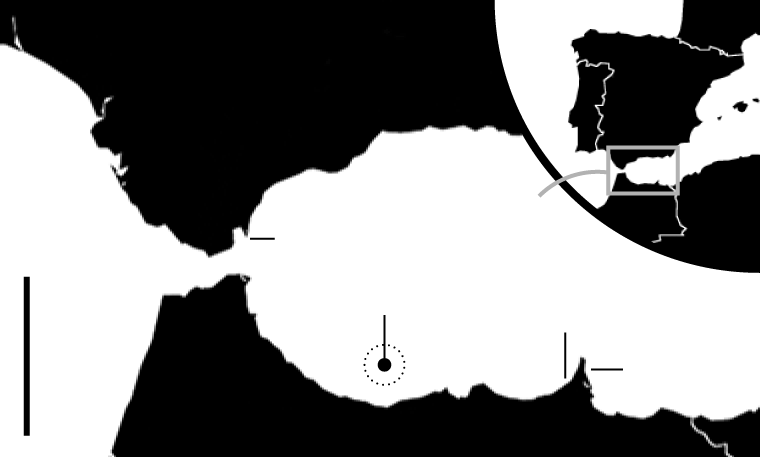
SPAIN
100km
Gibraltar
Boat's SOS
Bouyafar
Melilla
MOROCCO
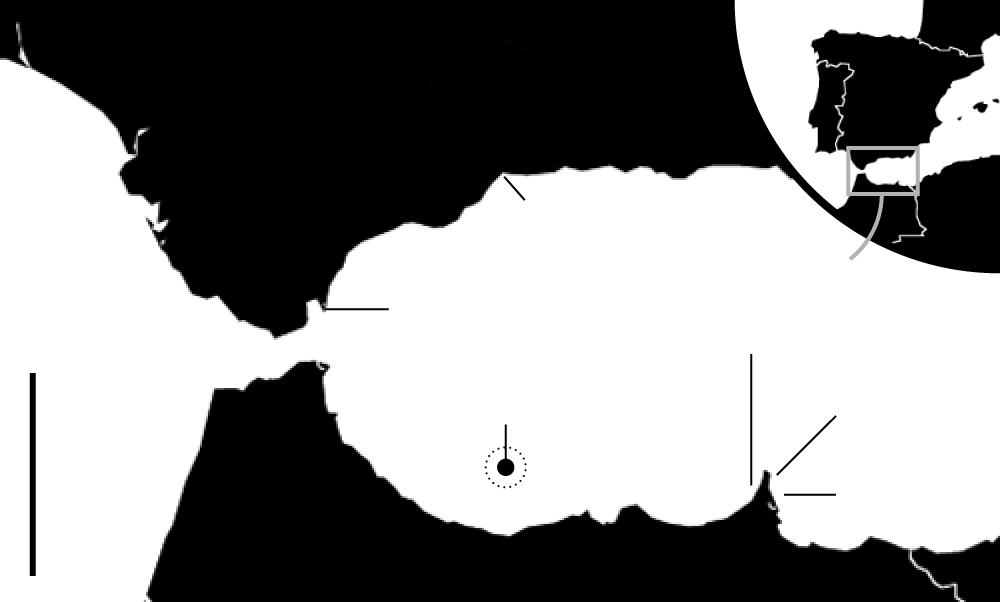
SPAIN
Malaga
100km
Gibraltar
Bouyafar
Boat's
SOS
Melilla
Nador
MOROCCO
Reconstruction of the events
14 August 2018
A dinghy departs from the Beni Boughafer beach, on the outskirts of Nador. On board are 37 people:
7 women (+2 young children)
Aline Mayamba Sita
Congo

Getou Mbala
and Gemima
Congo

Cissé Adja and
Diabaté Marian
Côte d'Ivoire

Anna Sylla
Aicha Ivoirienne
unknown
unknown
28 men
Bah Ousmane
Guinea Conakry

Moussa Doukanassi
Mali

Mustafà Kaba
Guinea Conarky
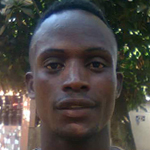
Soukouna Fusseny
Mali
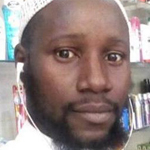
Mamadou Traoré
Mali
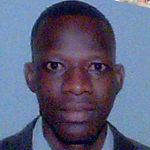
Mamadou Bénté
Guinea
Ibrahima Diallo
Ismaïla Fofana
Boubacar Diallo
Mamadou Diallo
Ousmane Touré
Ibrahima Pastoré
Mamadou Bénté
Famany Touré
Fredy
Sadio Sarr
unknown
unknown
unknown
unknown
unknown
unknown
unknown
unknown
unknown
unknown
unknown
unknown
According to the testimony of Diallo, a Guinean smuggler who participated in organizing the voyage, the migrants paid between 900 and 2,500 euros each for a place on the boat.
Moussa Doukanss, a young Malian, sent this voice message by WhatsApp to his cousin in France:
The boat's engine was breaking down and the rough sea caused four people to fall into the water in the middle of the night.
ARA spoke with the smuggler who organized the voyage, a Malian identified as Mussa, who accuses the Morrocan navy of failing to respond to his distress calls:
The 37 people who departed
on Mussa’s boat remain missing.
Who are the victims
“She wanted to bring her four children to Europe”

Age
42 Years
Country
Congo
Profession
Nurse

“She wanted to bring her four children to Europe”
She decided to emigrate to Europe to live in Paris with her sister after separating from her husband and ending up alone with her four children, the youngest of whom is 17 years old. The children remain in the Congo. Aline settled in Morocco in 2016, where she volunteered with an evangelical Church until she was able to raise money to pay for a place on a dinghy. She hoped to subsequently bring her children to Europe. "She wanted to embark on this journey, and we told her not to do it, that it was too dangerous. We have a cousin in Italy who could have submitted a request for a visa for her. I was willing to pay for a room in Rabat until everything had been resolved," explains her sister Wivine. "But she did not listen to us. We talked to her four days before she boarded the dinghy and we have not been able to learn anything more since. She shut off her cell phone."
Her brother Sita Moussampai, who has a Congolese restaurant in Brussels, saw that something went wrong when a friend of Aline told him she had sailed and yet four days later he had no news from her. Sita went to Nador, visited the morgue and gave DNA samples to the Moroccan police, but half a year later he had no response from the authorities. Wivin has filed a disappearance claim with the Red Cross’s “Restoring Family Links” service, which has not been able to find out anything else. The family did not assume that the Aline had died in the Mediterranean until April, eight months after the disappearance. It then finally held a funeral for her in the Congo.

“She wanted to bring her four children to Europe”
and Gemima
“She had a one-year-old daughter but she didn't tell her family anything.”

Age
28 and 1 Years
Country
Congo
Profession
Student

“She had a one-year-old daughter but she didn't tell her family anything.”
When she finished her law degree in 2015, her sister Nathalie was living in France and Natalie wanted Getou to come. "She spent three years in Morocco. I paid for her room and food while I tried to find a solution. Getting a visa is very difficult," explains her sister Nathalie from Paris. Natalie has lived in France for twenty years and works as a geriatric assistant. "One day she called to tell me that if I sent her 2,000 euros she would find a connection. And I sent her the money, but I did not imagine that she would come in a zodiac. I hoped she would find a safer boat," Nathalie remembers. At the beginning of August she told Nathalie that she had everything ready and that she would leave in a few days. Nathalie has not learned anything more since.
Because she had no news, Nathalie called Getou's apartment-mates. "At first they told me she was in Spain with the Red Cross, but once a month had passed I knew something was wrong. I got in touch with the Congolese embassy in Morocco and they told me my sister was traveling with her one-year-old daughter. How can it be? She hadn't told me anything about the baby. I would have gone to Morocco to help her give birth. I would have had her by my side! But she hid it from me. And how could they let her get on a dinghy with such a small child?"
Later at the embassy they confirmed that the bodies of some women and children had arrived at Nador beach a few days after the shipwreck. "They told me they were in very bad condition and they could not identify them, but that they were all dead." Nathalie acknowledges that she has a hard time believing her sister is dead, along the baby niece she never met. In November she went to the Congo to tell her mother and the rest of the family. "[Our mother] wants to believe she is still alive, and that she must be somewhere. I have tried to make her understand, but it is a big thing and I do not want to force it."

“She had a one-year-old daughter but she didn't tell her family anything.”
Diabaté Marian
“She had suffered threats. She brought the older children to a safe place and left with the little one.”

Age
30 and 3 Years
Country
Côte d'Ivoire
Profession
Housewife
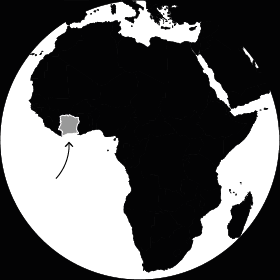
“She had suffered threats. She brought the older children to a safe place and left with the little one.”
Diabaté was a non-commissioned officer in the Ivory Coast. He and his wife, Cissé, had 4 children and they also took care of the son of their older brother. In October 2015 he had to flee the country because he had a conflict in his military unit. In Libya he climbed into a small boat, he was rescued by an Italian military ship and eventually settled in Paris. But the military continued threatening their family. Cissé feared for her life, so she left her eldest children with a cousin in her hometown, and she departed for Morocco with Mariane, who was then one year old.
"A smuggler told me he could take them for 1.6 million francs CFA [about 2,500 euros]. I sent the money but it disappeared without a trace. I did not have anything, I would always send her 50 or 100 euros to pay for the room and the food when I could," explains Diabaté. Cissé met someone who introduced her to Moussa, and he offered to let her board the dinghy without having to pay for the girl. "I needed to pay 1,600 euros and I got this from friends and family." They remained in contact until August 14, when she called him to say that they would travel that day. "Prey for us, she asked me."
"Since then I have not had any news of my wife or my daughter," says Diabaté. "I call Moussa and he tells me they are in a prison. My other children, who are now 5, 8, 11, call me asking where their mother is, and the cousin tells me she can not keep them. I do not have papers and I barely survive with sporadic jobs. I am losing my mind."

“She had suffered threats. She brought the older children to a safe place and left with the little one.”
“He left without saying goodbye because he knew we would not let him get on a dinghy.”

Age
28 Years
Country
Guinea Conakry
Profession
Trader
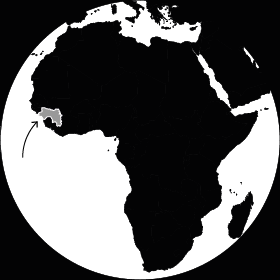
“He left without saying goodbye because he knew we would not let him get on a dinghy.”
"Young people want to go to Europe: we told him to wait for them to give him a visa, but I knew they would not give it," recalls Abdoulaye Diallo, who lives in southern France, thinking of his conversations with his cousin Ousmane. "He had friends who had managed to get to Italy and Spain on dinghies and they convinced him to follow. He left without saying goodbye, because he knew if he told us we would not let him. When we learned he had taken a flight to Morocco we tried to get him to return home but he did not want to listen to us."
Abdoulaye learned from a friend of his cousin that Ousmane had left on a dinghy on 14 August. The friend, since he had no more news from him, warned: "We talked to the smuggler, a Guinean man, who told us that they had lost their way because the compass broke and they were left without fuel." Abdoulaye has already lost hope, but they have not dared to explain the truth to his aunt, Ousmane's mother: "She is very worried, and we have only told her that he does not call because he must have lost his cell phone."

“He left without saying goodbye because he knew we would not let him get on a dinghy.”
“The whole family in Mali cries for him: he has a wife and two children.”

Age
30 Years
Country
Mali
Profession
Trader

“The whole family in Mali cries for him: he has a wife and two children.”
In June 2018 Moussa Doukanassi left the small store he ran in Bamako. "I did not know anything. He called me from Morocco, and I told him not to do it," explains Diallo Lassana, a construction worker who has been living in Montreuil, on the outskirts of Paris, for the past 20 years. "On 13 August, he sent me a voice message on WhatsApp to tell me he was about to go on the dinghy," recalls Lassana. "I have not had any news since. The whole family in Mali cries for him: he has a wife and two children. They tell us the passengers were rescued but it's been too long. If they rescued them where are they? I think they are dead."

“The whole family in Mali cries for him: he has a wife and two children.”
“He studied law, but dreamed of being a football player.”

Age
25 Years
Country
Guinea Conarky
Profession
Degree in Law

“He studied law, but dreamed of being a football player.”
"He studied law, but dreamed of being a football player," explains Mohamed Sylla, an official at the Gbessia international airport in Conakry. Mohamed is speaking of his nephew Mustafà. It was not the first time his nephew tried to emigrate: in 2016 he had tried the central Mediterranean route. "He went to Algeria and from there to Libya, but they caught him when he was on the beach, about to embark on a dinghy, and they put him in prison." His mother had to pay three million Guinean francs [somewhat less than 300 euros] to get him freed. He returned home but only two months later he decided to try again. He had friends who were already in Europe and he wanted to follow the same path.
He flew to Morocco and spent 6 months in Rabat playing in a local football club. Because the family did not know anyone there, they contacted a peasant living in Rabat to ask him to act as his guardian. One day this man called Mustafà's mother and told her that Mustafà had left Rabat and that he was about to embark on the crossing to Spain. A few weeks later the man told her that Mustafà had succeeded. They even had a party to celebrate." But the mother did not keep calm because she could not understand why her son was not calling her. They called the guardian, who said Mustafà was dead, that the ship had sunk and that he had not been wearing a vest," explains the uncle. "The mother is very sad. She invested everything she had in her son's journey and now there is nothing left. They have had the funeral without his body, because they have lost hope of finding him alive."

“He studied law, but dreamed of being a football player.”
“He had to leave Mali because of the drought”

Age
30 Years
Country
Mali

“He had to leave Mali because of the drought”
"When his father died, he took care of his mother and brothers. He worked the family's land to feed them. But with the drought, survival was impossible and he decided to emigrate." This is how Kaloga Fusseny remembers his cousin Sokuna, who wanted to follow in his footsteps. Kaloga arrived in Italy in August 2014, after fishermen rescued the barge he was traveling on with 108 people and took them to Sicily which had not yet closed its ports. He settled in France, where he worked in restoration and construction. "I crossed and I am happy to be in Europe, but I spent 13 hours in a dinghy and would not do it again." He promises he had no idea his cousin Soukouna wanted to follow in his footsteps. "He called me from Morocco and he told me he had everything ready to cross with the dinghy. I told him to try for the fences in Ceuta and Melilla instead, as they were less dangerous, but he did not pay attention." There is no sign Soukouna is alive and the family has decided to distribute his photograph on social networks with a text reading: "Brothers and sisters, I have no news of my brother Soukouna Fousseny, who should have left on a boat from Morocco on the 13th or the 14th of August of 2018. If you have any information contact us. Please pass this on." Kaloga traveled to Nador to find him. He thought that, as still happens in Libya, Soukouna could be imprisoned in a detention center. Nador went to the Red Cross and the Gendarmerie, where he was shown photographs of 12 bodies found in August, but none seemed to be his cousin. They did not let him see the bodies in the funeral home. He also reviewed, at the Malian consulate in Rabat, the photos of 200 young Malians who had been repatriated to his country. "Morocco is not Libya, immigrants are not imprisoned there and you can always find a phone number to call. It is impossible to be alive and have not called his family, but I do not have the proof he is dead. It does not make sense to continue searching."

“He had to leave Mali because of the drought”
“He had a wife and a one-year-old son, and he told them he was going to work in the capital.”

Age
28 Years
Country
Mali
Profession
Electrician

“He had a wife and a one-year-old son, and he told them he was going to work in the capital.”
"He had a wife and a one-year-old son, and they lived in a village in western Mali. He told them he was going to the capital, Bamako, to look for a job, but he actually took an airplane and went to Morocco with the intention of going to Europe," explains Magassa from France, where he has lived for the past eight years. He knows little else of what happened to his cousin. "His friends from Mali told me they lost contact with Mamadou, that he had disappeared, and they asked me to search for him. I have asked for help through Facebook and no one can give me any information," he says. A Guinean smuggler with dinghies in this area, who we contacted in the forests of Nador, confirms that Mamadou embarked on the morning of 14 August on the same boat that was lost. He was part of the group of 10 people who this man brought to the boat organized by the a Malian smuggler.

“He had a wife and a one-year-old son, and he told them he was going to work in the capital.”
“We did not have the money for both of us to get on the dinghy.”
“We did not have the money for both of us to get on the dinghy.”
Ibrahim Barry wanted to immigrate to Spain with his brother Mamadou Bénté. They traveled together from Guinea to Morocco, but when they had the opportunity to go on a dinghy headed for Spain they did not have enough money to pay for both. Ibrahim stayed on the land. He is still in the forests of Nador, but after losing his brother he is considering going home. "I have lost hope of him being alive, my parents call me every day to try to get me to come home. I no longer want to emigrate, I will go to the consulate to get them to help me return." He is the family member who was closest to the actual events, having been on the shore when his brother boarded. "I sensed they had problems with the engine and that the weather was bad. They called the Royal Moroccan Navy to rescue them, but I do not know anything more," he explains.
Without
information
Identified by Diallo, one of the smugglers who organized the dinghy.
Without information
Without
information
Identified by Diallo, one of the smugglers who organized the dinghy.
Without information
Without
information
Identified by Diallo, one of the smugglers who organized the dinghy.
Without information
Without
information
Identified by Diallo, one of the smugglers who organized the dinghy.
Without information
Without
information
Identified by Diallo, one of the smugglers who organized the dinghy.
Without information
Without
information
Identified by Diallo, one of the smugglers who organized the dinghy.
Without information
Without
information
Identified by Diallo, one of the smugglers who organized the dinghy.
Without information
Without
information
Identified by Diallo, one of the smugglers who organized the dinghy.
Without information
Without
information
Identified by Diallo, one of the smugglers who organized the dinghy.
Without information
Without
information
Identified by Diallo, one of the smugglers who organized the dinghy.
Without information
Without
information
Identified by Diallo, one of the smugglers who organized the dinghy.
Without information
Without
information
Identified by Diallo, one of the smugglers who organized the dinghy.
Without information
Without
information
What happened?
In a detention center in Nador, ARA has tracked down Sadio Sarr, a young Senegalese man who was rescued on 14 August from a dinghy with 37 people on board. The other shipwrecked passengers called him the "captain" who piloted the boat, and a Moroccan judge has sentenced him to 5 months in prison.
Sarr could not recognize any of the missing people who feature in this report.
It seems likely, therefore, that he was on a different dingy - that there were two boats in the area, each carrying 37 people, and that only one was rescued. The other was left drifting through lack of coordination by the Spanish and Moroccan rescue teams.
Dead who are not counted
The Berlin office of the International Organization for Migration (IOM), which tracks the dead and disappeared in the Mediterranean, confirms that it had no news of this shipwreck. It has now opened a case after being contacted by ARA. With a lack of cooperation by the Moroccan authorities, who have not responded to IOM's request for information, the case is pending in the organization's internal registries, but not in the public database, because it cannot be verified. This provides additional evidence that official records underestimate the deaths that are occurring in the Mediterranean.
Spain has no registry of the disappeared
Spain has no registry of the people who disappear in the Mediterranean. The bodies that are recovered by the Maritime Rescue teams are handed over to the authorities when they reach port, and -- as with those found by fishermen or who wash up on the beach -- they become the responsibility of an investigating judge. Once a body is brought in, the judge is responsible for identifying it and investigating the circumstances of the death.
The proceedings are usually minimal and the bodies end up in municipal cemeteries, identified only as "immigrant," with the date they were recovered. Photographs and DNA samples are not normally taken from the dead. (The Spanish practice here differs from that of other countries, including Greece, which do take photographs and DNA samples.) Custody of the bodies lies with municipal authorities. As a result, finding a missing relative ends up being an impossible task.
Where are the witnesses who participated in this report
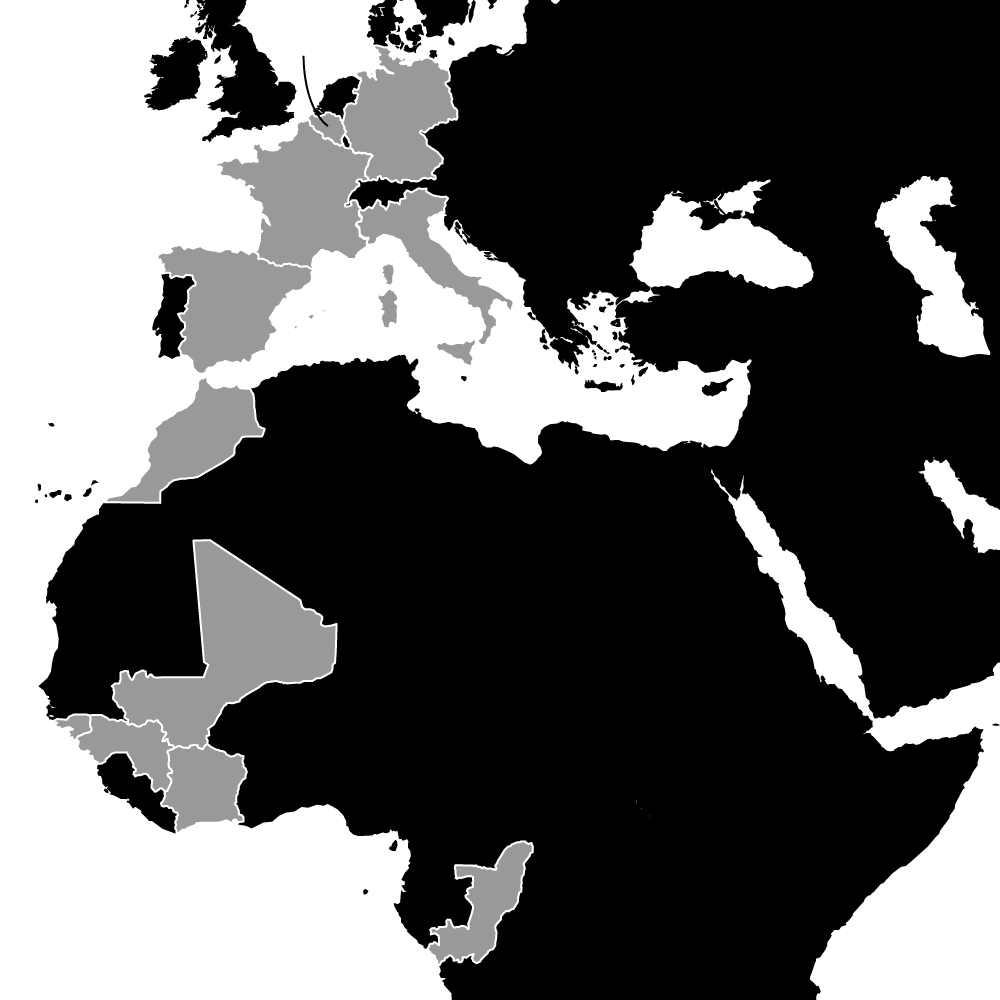
9
11
8
10
7
6
3
5
4
2
1
1. Congo / 2. Côte d'Ivoire / 3. Mali / 4. Guinea Conakry / 5. Guinea Bissau / 6. Morocco / 7. Spain / 8. France / 9. Belgium / 10. Italy / 11. Germany
Note:
Acknowledgments: Cheick Ndao and all the witnesses who have participated in the preparation of this report.
If you have more information about this case, please write to internacional@ara.cat